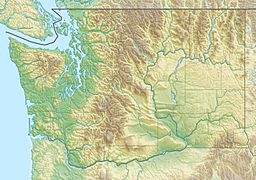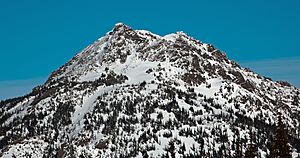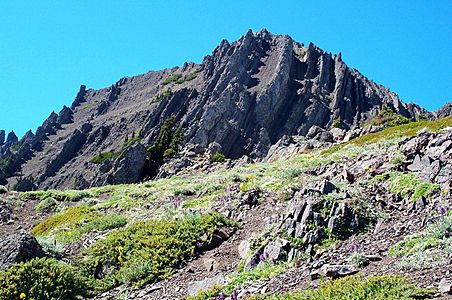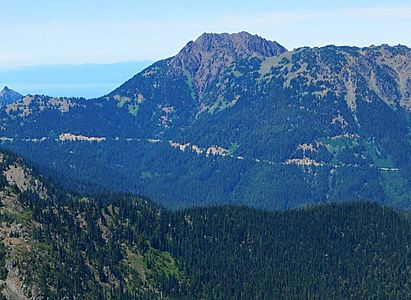Mount Angeles facts for kids
Quick facts for kids Mount Angeles |
|
|---|---|
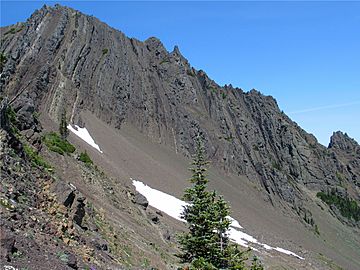 |
|
| Highest point | |
| Elevation | 6,454 ft (1,967 m) NGVD 29 |
| Prominence | 1,614 ft (492 m) |
| Geography | |
| Parent range | Olympic Mountains |
| Topo map | USGS Mount Angeles |
| Climbing | |
| Easiest route | Exposed Scramble, grade II, class 3-4 |
Mount Angeles is a cool mountain found in the Olympic National Park in Washington. It's located just south of a city called Port Angeles. This mountain is the tallest peak in the Hurricane Ridge area.
When you reach the top, you get amazing views! You can see the Strait of Juan de Fuca and many other peaks in the Olympic Mountains. You can climb to the summit using the Klahane Ridge trail.
Water from Mount Angeles flows in different directions. Some water goes into Morse Creek and Ennis Creek, eventually reaching the Strait of Juan de Fuca or Port Angeles Harbor. Other water flows into the South Branch of Little River, which then joins the Elwha River before reaching the Strait of Juan de Fuca.
Weather at Mount Angeles
Mount Angeles has a special kind of weather called a marine west coast climate. This means it gets a lot of moisture from the Pacific Ocean.
Most of the weather systems start over the Pacific Ocean and move towards the Olympic Mountains. When these systems hit the tall mountains, they are forced to rise. As the air goes up, it cools down and drops its moisture as rain or snow. This process is called orographic lift.
Because of this, the Olympic Mountains get a lot of rain and snow, especially in winter. Winters are usually cloudy. However, in summer, high-pressure systems over the Pacific Ocean often bring clear skies and sunshine.
How Mount Angeles Was Formed
The Olympic Mountains, including Mount Angeles, are made of special rocks. These rocks were once part of the ocean floor! Over millions of years, they were pushed up and folded to form mountains.
The main rocks are sandstone, turbidite (which are rocks formed from underwater landslides), and basalt (a type of volcanic rock). These rocks were formed during the Eocene time period, which was about 56 to 34 million years ago.
Later, during the Pleistocene era (also known as the Ice Age), huge sheets of ice called glaciers moved across the land. These glaciers helped shape the mountains, carving out valleys and peaks as they advanced and melted many times.
Gallery
Images for kids
-
Mount Angeles (left), Rocky Peak (right)
 | Chris Smalls |
 | Fred Hampton |
 | Ralph Abernathy |


